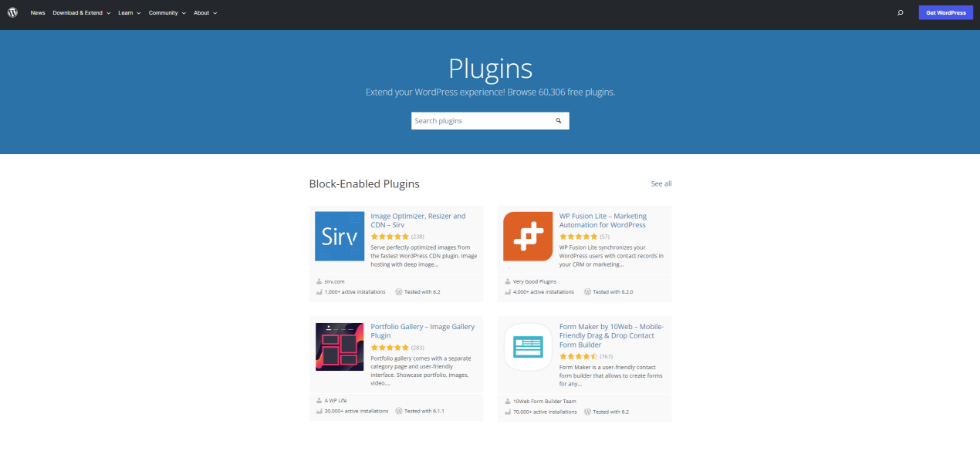If you’re running a digital agency, you probably often have clients asking for custom functionality. Fortunately, WordPress offers solutions through its plugin repository, where developers can benefit from other coders’ efforts. These plugins allow users to easily integrate desired features into their websites, either by extending already existing functionality or adding entirely new ones. However, in some cases, a particular functionality may require either the customization of an existing plugin or the development of a completely new one. But how do you decide if your agency needs the capability to do WordPress plugin development? In this article, we will explore the possible scenarios where plugin development might benefit your digital agency and help you determine if it’s the right solution for you.

When do your clients need custom plugins?
Custom plugins and existing WordPress plugins offer different approaches to extending the functionality of a website. Custom plugins provide tailored solutions, and offer a high level of customization, ensuring seamless integration and alignment with the client’s branding. On the other hand, WordPress repository plugins provide ready-made solutions for common functionalities. They are user-friendly and easy to install, making them suitable for websites that don’t require extensive customization.
Custom plugins are mostly used for high-level projects. For instance, they can be used to make separate API requests that are not built in as a feature of the theme. Let’s say you have a client who wants to display their latest Instagram posts on their WordPress. You can create a custom plugin that fetches the latest posts using the social media platform’s API and displays them on a separate page on the website, even if the theme doesn’t include this. In a similar way, custom plugins can be used to retrieve the latest news in JSON format, or to display real-time data for a client’s high-traffic website.
The most common case where plugin development may be needed is e-commerce websites. They may require adding a custom payment gateway, shipping integration, or a particular type of product display and filtering. Existing plugins may be limited to perfectly adjust clients’ needs.
Travel and tourism businesses may require WordPress plugin development to create custom booking systems, or integrate with third-party services. Custom plugins can be handy for providing location-based information and advanced search and filtering options.
Real estate businesses also may require plugin development to integrate with third-party MLS listings or to allow real estate agents to upload property listings. Customized search with price, location, and other criteria filtering can also be developed with custom plugins. Together with managing appointments and communication with clients.
Custom plugins can allow guests of hospitality businesses to view room availability and amenities, and make reservations and payments. The same goes for sports and entertainment businesses. Through custom plugins, developers can add ticket sales functionality, create event calendars, and provide live streaming and video content.
If your digital agency’s clients require any of the services mentioned above or other tailored functionality and features, it is worth considering investing in plugin development.

Plugin development as a service
Depending on the market situation, offering WordPress plugin development can be a profitable service for the agency. If your agency typically offers web design and development services, adding plugin development can be a source of additional revenue. It can be particularly beneficial if you have a market niche with clients in a specific industry. If you get to know a narrow branch, you’ll also become familiar with the types of features they frequently need. If your agency focuses on custom plugin development for such niche clients, you can provide a valuable service.
For example, healthcare and educational websites have a variety of unique needs and existing plugins may not always be the best choice. Healthcare websites often require a secure patient portal to allow patients to access their medical records and schedule appointments. A custom plugin can be developed for prescription refills too.
Educational websites may need plugin development for course management, learning management systems (LMS), online testing and assessments, and teacher and student communication. With custom plugins, your agency can provide course calendars, automated reminders, quiz creations, grading, and messaging.
Plugin development can offer agencies multiple revenue streams. Besides developing plugins for clients, agencies can also create and sell their own plugins for the wider WordPress community. These plugins can be licensed for single or multi-site use, or offered as part of a developer package. Furthermore, maintenance, support, and consulting services can provide recurring revenue.
Conclusion
To sum up, plugin development can be a valuable service for agencies looking to provide custom functionality for their client’s websites. It can be useful for e-commerce, travel and tourism, real estate, hospitality, sports, and entertainment businesses. Additionally, agencies can generate revenue by developing and selling their plugins and offering maintenance and support services. Ultimately, it’s up to the agency to determine if WordPress plugin development is the right solution for their clients’ needs.



